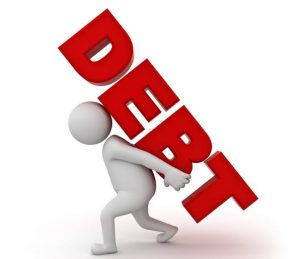One of the most significant objectives of microeconomic policy is to attain sustainable economic growth in the nation. This Is particularly among developing countries like Nigeria, which are attributed to a low capital formation due to low culture of domestic savings and investment.

No government does it all alone by itself; it would require aids to effectively and efficiently perform its constitutional duties. It is not unusual that the developing countries, when faced with a paucity of capital, usually resort to getting a loan from either internal or external sources. Thus, getting a loan may be considered a feasible alternative to capital formation during the country’s economic downturn.
It’s no doubt that Nigeria’s economy is so much dependent on its oil sector, which accounts for about 90% of the nation’s warnings from foreign exchange, with up to 36 billion oil reserves. The oil reserves have continued to account for the roughly 14% of the nation’s GDP and up to 90% of its income. The revenues from oil have been the primary source of financing government expenditures for social, economic and infrastructural development.
However, the decades of oil money is yet to improve the populace quality of life by putting an end to poverty. Nigeria’s economic failure is not unconnected to the failure of successive governments to effectively use utilise the oil reserves and revenue for the nation’s economic development.
Since the late 1990s, up to early 2000, Nigeria has not had a stable macroeconomic system. The nation’s GDP growth has been in an array of fluctuations. The inflation rate, which was high to about 29.3% in 1996, dropped in early 2000 but hasn’t been out of fluctuations till recent time. As a result, most operations of the government’s executive arms were financed through increased debt, with both internal and external sources.
The continues increase in the nation’s debt profile has brought about a high debt burden which results in poor economic growth as well as having grave consequences on the people’s welfare. Debt servicing has gravely affected the nation’s available resources for social and economic development. It is indisputable that the increasing debt servicing requirements impose considerable pressure on the nation’s economy.
Nigeria currently has a total debt stock of $86.39 billion (N32.92 trillion), including domestic and external debt. Even though the government used to be relatively conscious in managing its debt, public debt has continued to burden the economy. The enormous cost implication for debt servicing and the burden itself has depressed investment and economic growth through lack of liquidity and disincentive effects.
An instance was in June 2017 when 34% of Nigeria’s total revenue was spent on debt servicing, as stated by the Debt Management Office. This invariably has adverse effects on the nation’s expenditure on critical infrastructures and human development activities. Without considering whether there is a shortfall in the revenue or not, debt serving is still mandatory and would be done at the expense of developmental projects.
An empirical investigation of the impact of the nation’s debt stock- as published by the Asian Research Journal, revealed that:
External debt has little or no significant role in impacting the development process of the nation’s economy; it instead been unproductive in terms of its contribution to the GDP per capita of the country. Thus, the level of external debt accumulation should be drastically reduced.

Ultimately, the government should take its economic diversification with utmost urgency; this would help to reduce the over-reliance on public debt in financing its deficits, as public debt servicing harms the growth and development of the nation.